mv 110107
I AM writing to express my dismay that Jim Benedetto, after having participated in many deliberative sessions of our task force, after petitioning the House, and after petitioning the Senate, is now still campaigning against H.B. 15-38, the labor reform bill that passed the House with a vote of 15-0 and that passed the Senate with a vote of 9-0.Mr. Benedetto’s points in his renewed petition are wrong. They were wrong when they were first made, they were wrong when they were repeated many times during the legislative process, and they are wrong today.H.B. 15-38 may be the most legally scrutinized bill in recent years. It was reviewed by Ian Catlett, House counsel; Michael Ernest, Senate counsel; Howard Willens, special counsel to the governor; Dede Hill and Eleanor Nisperos, counsel to the Labor Department; Barry Hirshbein, head of the Administrative Hearing Office; Deanne Siemer, a former general counsel of the U.S. Department of Defense and trial lawyer; counsel for the chamber of commerce; counsel for other business entities; and other lawyers who took the time to participate in our public process. And I am a lawyer by training and have reviewed every word of the bill myself many times. This bill has passed muster in every legal respect in this very intensive review process.In response to Mr. Benedetto, let me be clear about the general allegations:(1) This bill does not narrow a worker’s right to file a complaint.(2) This bill does not make it impossible “for many to obtain any relief whatsoever under the Act” and does not restrict anyone’s ability to make a legitimate claim.What Mr. Benedetto says in criticism of H.B. 15-38 is wrong.Let me answer Mr. Benedetto’s renewed and oft-repeated charges, one by one.Restrictions on who can file labor complaints.Mr. Benedetto cites Section 4941 of the bill. This says: “Any foreign national worker who is aggrieved by the failure or refusal of his or her employer to comply with an approved employment contract may make a complaint to the department.” This provision of the new bill is an improvement over the existing law which says, in Section 4434(f), “No civil action may be brought by a nonresident worker against an employer for violation of the Minimum Wage and Hour Act or the Nonresident Workers Act unless the nonresident worker has first filed a written complaint concerning those violations with the chief of Labor no later than 30 days after the violation is alleged to have occurred.” Mr. Benedetto is wrong when he says the new bill is worse than the old law in this respect. Just the opposite is true.Mr. Benedetto says that anyone who does not have a contract or whose contract has not been approved yet or has an expired contract is not covered by the Act. That is wrong. Every worker who comes to the commonwealth must enter the commonwealth with a contract in place. That contract gives the worker the right of access to the Labor Department’s Hearing Office. Anything that happens to that contract — it lacks approval, hasn’t been renewed, is expired — can be adjudicated by the Hearing Office. No one has been turned away on those grounds under the existing law, and no one will be turned away on those grounds under the new law. Mr. Benedetto cites a provision of the Findings, Section 2, which provides that: “It is the intent of the Legislature that this Act shall not apply to persons admitted to the commonwealth as tourists, or to persons employed illegally, i.e. without the approval of the Department of Labor.” Mr. Benedetto is wrong when he says this deprives persons of rights. What it means is that these people — who come into the commonwealth as tourists and work illegally, must go to the courts, like anyone else with a complaint who has been cheated or treated badly. And the courts will determine those complaints. All it means is that the Labor Department’s hearing office is reserved for people who came here on work permits. The hearing office process is expensive for the commonwealth to maintain. There is no legal problem whatsoever in requiring people who came here as tourists to go to the courts instead of the hearing office.Mr. Benedetto says that “although some workers may file complaints just to stay in the CNMI, the vast majority file because they have not been paid.” That is wrong. It is just the other way around. The vast majority file just to stay in the commonwealth, although some workers may file complaints because they have not been paid. Mr. Benedetto cites no statistics, because he has none. The Labor Department’s statistics show that most complainants just want a transfer, and the delay that in previous years has allowed them to remain in the commonwealth waiting for a decision. The statute of limitationsMr. Benedetto complains about the six month statute of limitations in Section 4962(b) but what he tells you about that provision is wrong. Here’s what the provision actually says: “No labor complaint may be filed more than six months after the date of the last-occurring event that is the subject of the complaint, except in cases where the actionable conduct was not discoverable upon the last-occurring event. In such instance no labor complaint may be filed more than six months after the date on which a complainant of reasonable diligence could have discovered the actionable conduct.” In other words, this provision is very fair. If a worker couldn’t find out about something that could be the basis for a complaint, they have six months after they did find out or after a reasonable person would have found out. As I have pointed out above, the current law is more restrictive. So the new law is better for foreign workers.As to whether six months is a reasonable amount of time, one should think about it this way: if you haven’t been paid, or you haven’t been provided with promised benefits, or indeed if there is no job at all, how long does it take to figure that out? A statute of limitations is not measured against any other law. It is measured against the situation at hand. The Legislature decided that six months is reasonable. That means these complaints will not be brought years later when the employer may have lost the records or testimony necessary to defend against these claims. As for no other statute of limitations being this short, Mr. Benedetto is wrong. For example, the Probate Code has a statute of limitations of 60 days.The departure and return provisionMr. Benedetto complains that a worker who files a complaint must leave the commonwealth within 30 days and can come back five days before the hearing. He is wrong about this. Section 4956 of the new bill provides this: “A foreign national worker who is required to exit the commonwealth shall be permitted to remain in the commonwealth for a period not to exceed thirty days in order to pursue a civil or criminal claim, or to pursue violations of any commonwealth labor law. After the filing of an action, this period may be extended and departure stayed by a hearing officer or court of competent jurisdiction as necessary to ensure due process rights are protected.”The Legislature found that some workers manipulate our system just to stay in the commonwealth. This provision allows the hearing officer to permit anyone with a legitimate claim to stay in the commonwealth for as long as it takes to pursue that claim. But it also allows for exit if the person making the claim is “gaming” the system. The hearing officers are fair. Their procedures will contain a presumption that workers may stay to pursue their claims. The Labor Department is disposing of claims in a much more expeditious manner right now. But should they find that guest workers are taking advantage of the system, H.B. 15-38 simply gives the hearing officers the option of having these people go home and await the date for their hearing. We have taken into consideration the court cases that Mr. Benedetto cites. He knows this because he was a part of these discussions. The lawyers who have reviewed the bill believe that this provision is consistent with these court decisions. I agree.Restrictions on transfersMr. Benedetto complains about the new provisions with respect to transfers. He is wrong about his conclusions as to how the new system will operate. First, I need to explain that unrestricted transfers lead to the worst enforcement problems that the Department of Labor has. These transfers lead to abuses of the system, illegal employment, payment by workers for illegal jobs just to stay in the commonwealth, and “underground” employment. The Legislature curbed the unrestricted right to transfer for good reasons. We need to end these abuses. If a worker has a legitimate reason to transfer, all they have to do is appear before a hearing officer and state those reasons. With the new operations by Internet communications that the bill supports, workers with legitimate reasons to transfer may even be able to submit their applications by e-mail and have them approved by return e-mail. The bill does a lot to improve the processes of the Labor Department and foreign workers will benefit by this as will everyone else.It is true that transfers must be accompanied by a reason. Those reasons include unlawful termination by an employer, reduction in force, and abandonment of the worker. Those reasons include failure to pay wages, exit from the commonwealth by the employer evidencing an intent not to return, bankruptcy, and closure of the business. In addition, if the hearing officer finds some equivalent theory of law or some equivalent theory of equity, the hearing officer can find that transfer relief is appropriate. That is a safety valve for the future. We know what conditions are now, and we have provided for those. Maybe there will be different abuses in the future, and we have allowed the hearing officers to provide for those. This is a fair system.Violations by workersMr. Benedetto complains that there are “traps” for workers who violate the law. He is wrong. There are no traps. Anyone who has allegedly violated the law will be brought before a hearing officer who will decide the case. Our hearing officers decide cases fairly. They don’t implement “traps.” To say that this is how the system works is an insult to our hard-working hearing officers.Judicial reviewFinally, Mr. Benedetto complaints about judicial review. The judicial review under H.B. 15-38 is basically the same as the judicial review under existing law. The “record” is the documents and evidence that support the claim. This provision with respect to the “record” prevents employers from surprising workers with “new” records on appeal. This provision protects workers; it does not disadvantage them. In conclusion, this has been a long debate. The House committee, the House, the Senate committee, and the Senate took more than 18 months to consider this bill. We had public hearings, we had many meetings, we were approached by Mr. Benedetto, the business community, local community groups, and concerned persons with all kinds of viewpoints. We balanced all these interests and came up with a good bill. To suggest otherwise is just not fair.
REP. CINTA M. KAIPAT15th CNMI Legislature
.
.
TAOTAO TANO HAD SPOKEN
- A direct impediment to the human right to self-determination
- 12808 st - Taotao Tano rebuts Pete A. in interview with KSPN 2 News
- TAOTAO TANO CNMI sents letters to the community
- 011608 st - SEND THEM HOME
- 011608 mv - Guest worker faces deportation
- 011608 mv - TAOTAO TANO SLAMS FEDERAL LABOR OMBUDSMAN
- 121407 mv - Trampled by foreigners
- 121407 mv - The despair of the indigenous people
- 121407 st - Familiarity breeds contempt
- 121407 st - 'Be selective on who to bring in'
- 121407 st - This land belongs to the indigenous
- 121407 st - To the people of Precinct 1
- 121407 mv - Think again
UPDATES by links
- 020808 mv - Fitial ready to testify in DC vs federalization, wage hike
- 020108 mv - US Senate panel OKs federalization bill
- HOUSE APPROVED 3079
- 121407 mv -Fitial says feds applying ‘socialism’ to NMI
- 120707 mv - Bingaman answers Fitial
- 120307 mv - US House may vote on NMI federalization
- 110607 mv - Cohen: Fitial administration ‘misinterpreted’ nonimmigrant provision
- 110207 mv -Guest workers brace for final version of federalization bill
- 110207 mv -Gov’t to recalculate numbers of migrants before year ends
Wednesday, October 31, 2007
Open letter to the federal ombudsman
at
6:10:00 AM
Posted by
TAOTAO TANO CNMI
![]()
Subscribe to:
Post Comments (Atom)
OUR FALLEN HEROES
SAME THING WILL HAPPEN HERE - JUST CHANGE THE NUMBERS
JUST CHANGE THE NUMBERS TO CNMI NUMBERS AND
THE COHEN PLAN WILL HARM THE CNMI IN THE SAME WAY
CURRENT IMMIGRATION POLICIES WILL DAMAGE THE USA.

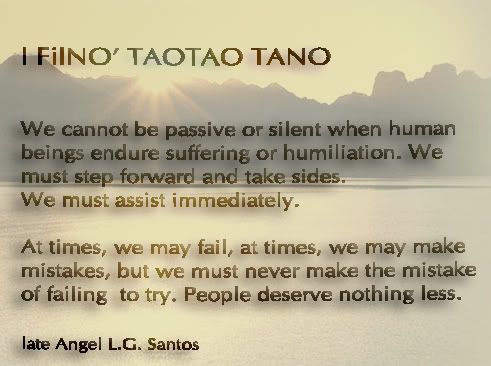


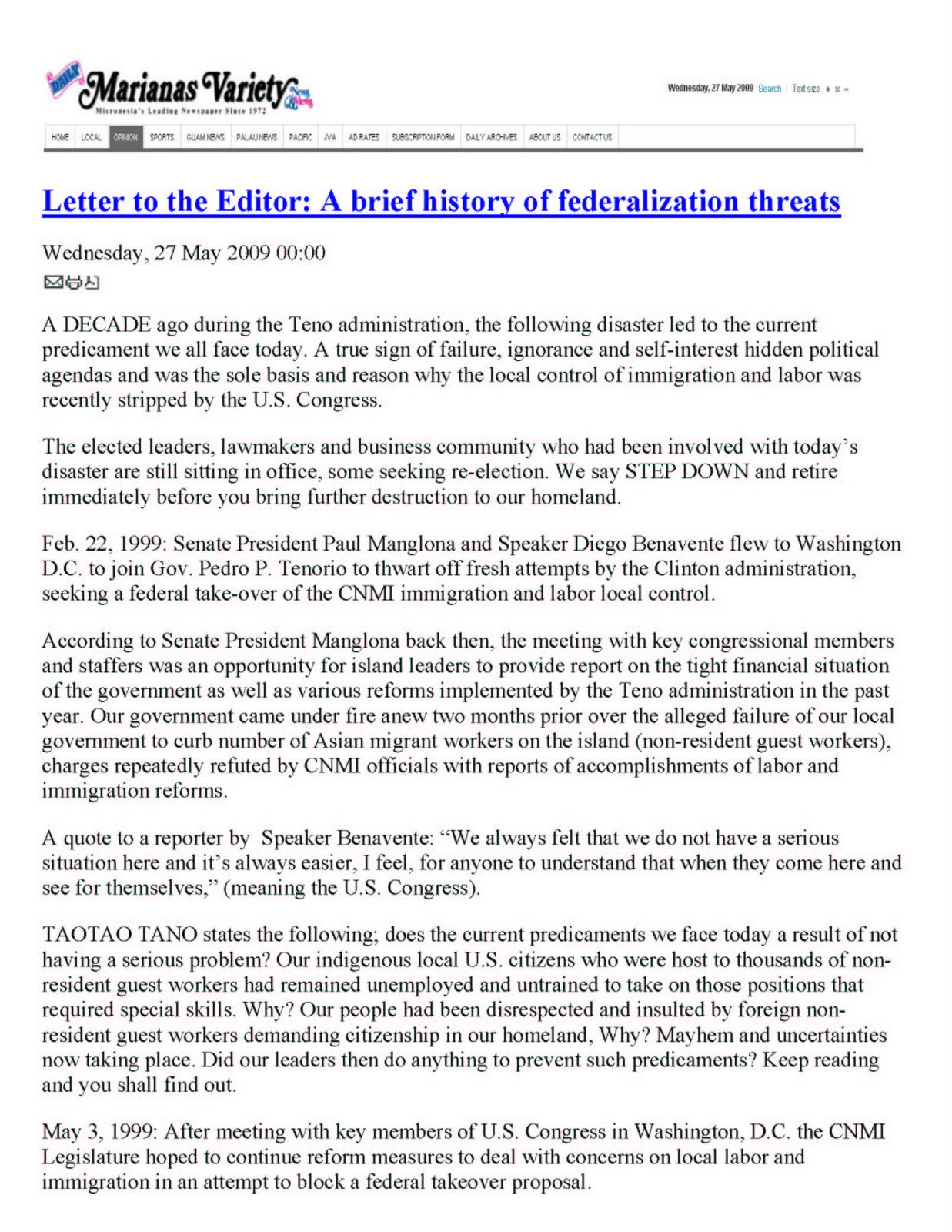




















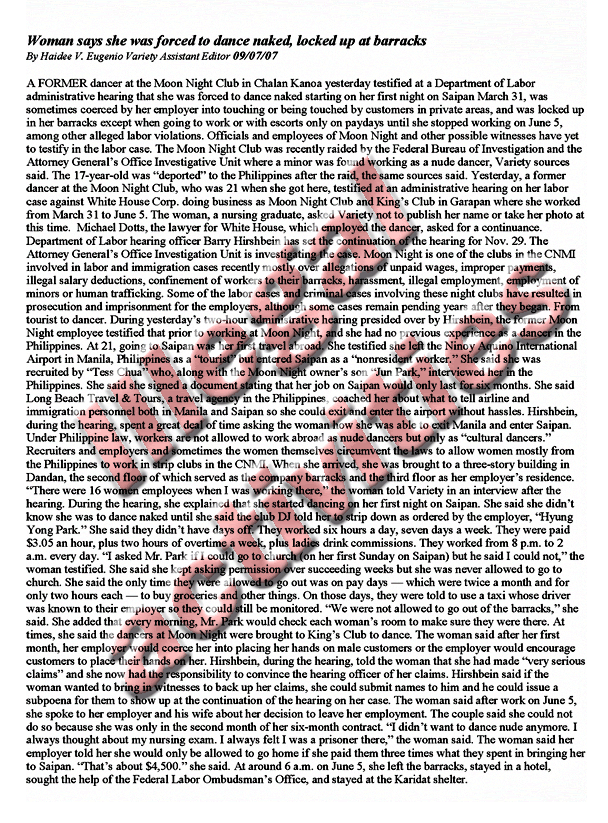
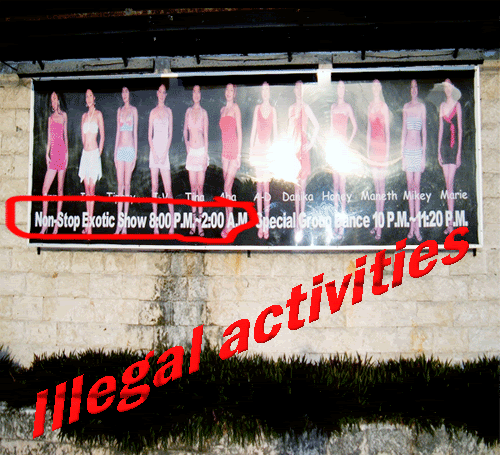


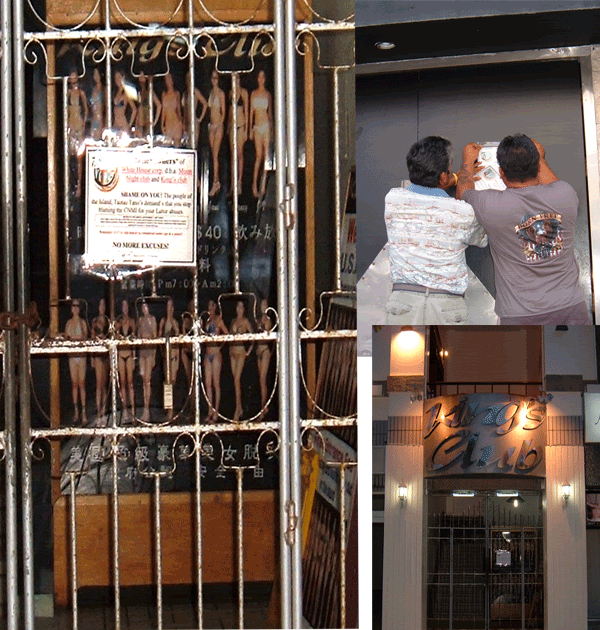
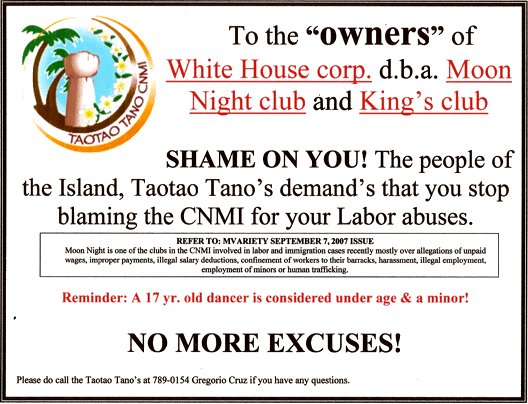
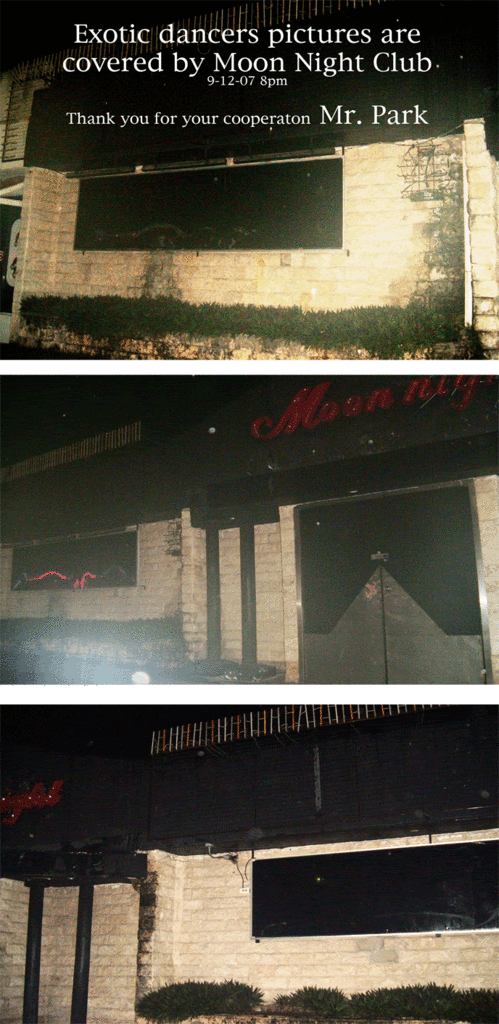
No comments:
Post a Comment